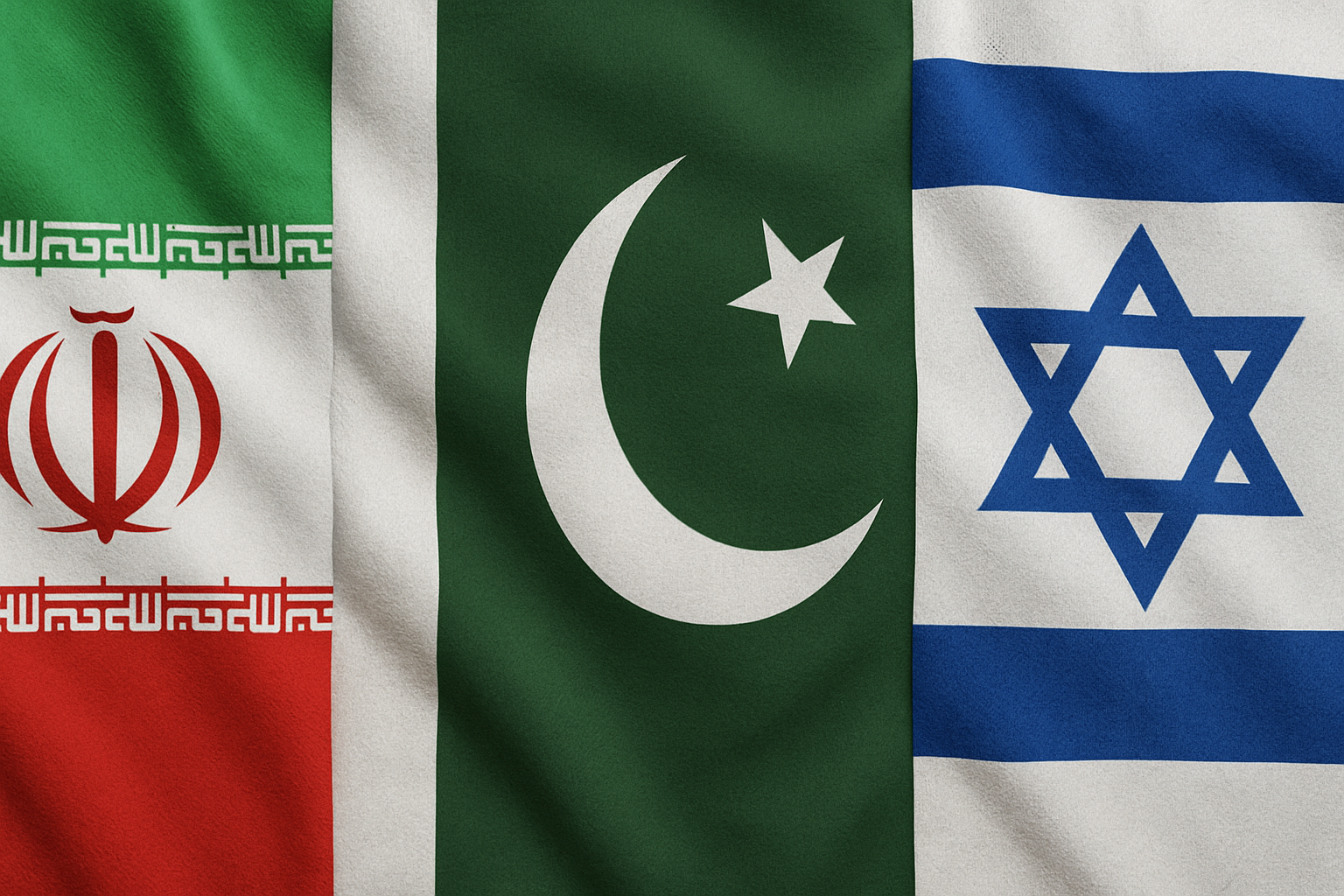What does the Iran-Israel Crisis Mean for Pakistan?
Ezba Walayat Khan
06 August 2025


The twelve-day war between Iran-Israel expands far beyond a regional collision as it shattered the norms of governance, demonstrated discriminatory enforcement of laws, and showcased a growing norm of pre-emptive aggression. Such clashes do not remain confined to their immediate battle zones, their aftermath lingers and tests the strategic limits and response of neighbouring states. To Pakistan, the Iran-Israel saga translates into an increasingly fluid and unpredictable geopolitical landscape and speculative discourse of who might be ‘next’.
Israel’s policy of using preemptive airstrikes to neutralise alleged nuclear threats is neither new nor secret. For example, Israel targeted Iraq’s Osirak reactor in 1981 and Syria’s al-Kibar site in 2007. The most recent strikes on Iranian nuclear facilities, which were under IAEA safeguards, have been framed as national security imperative. These actions have increasingly eroded the standards of proportionality and aggression, making preemption an accepted strategic option in the strategic calculus of states with nefarious designs. Israel’s operational logic appears to broaden in scope and rhetoric with every subsequent strike.
While the conflict was confined to the Iran-Israel theatre, a former Israeli Deputy Defence Minister brought Pakistan into the ambit, unnecessarily, when he proclaimed, “After Iran’s campaign, we may seek to dismantle Pakistan’s nuclear programme.” While the statement is unofficial, the timing of this comment during an active military confrontation cannot be disregarded. It also invoked some debate, particularly propagated by Indian media to amplify Pakistan’s threat perception. However, the Deputy Prime Minister of Pakistan responded firmly, saying, “Our message is clear for Israel, dare not look at Pakistan.”
This particular episode also echoed another sinister instance from the 1980s when reportedly India provided tacit support for a covert Israeli strike on Pakistan’s nuclear facility in Kahuta from an air base in India. While it never operationalised, it did raise Pakistan’s concerns. In the strategic perspective, India’s security establishment is deeply influenced by Israel’s operational doctrines of preemption, fusing nationalism and counterterrorism. India must realise that Pakistan’s strategic realities are not comparable to Iran. Furthermore, while intelligence shortcomings in Iran’s security apparatus have been uncovered in the recent conflict, however, Pakistan has a long history of operational depth, regional awareness, and strong intelligence. Moreover, due to the its ever-evolving threat perception vis-à-vis India, it continues to adapt to the evolving security threats.
Additional threats for Pakistan vis-à-vis the security situation in Iran stem from its 900-km long border with the latter. According to the Regional Security Complex theory the security conditions of neighbouring states are interconnected. Consequently, Pakistan’s comprehensive security environment may be affected by Iran’s heightened insecurity.
As the security implications expand to the core of Pakistan’s economic development. Almost 40 percent of LNG and oil imports of Pakistan pass through the Strait of Hormuz which faced heightened vulnerability amid regional escalations. Iran seriously consideried the option of closing this important chokepoint, which might have disrupted shipping lanes, flared up prices, incurred shipping delays, and increase insurance premiums. Pakistan’s economy already struggling with price volatility and fiscal consolidation; fuel shortages and high costs might put even greater risk to export competitiveness and industrial productivity.
The weakening of international standards and diplomatic fallout is another challenge. Given the response of international community, particularly of the IAEA, on targeting Iranian nuclear facilities, there is a muddling of line between legitimate defence and strategic coercion. Pakistan, as an important member of the global order and as the current President of the UNSC, must advocate for the values that reinforce the aegis of international security and the rule of law.
‘After Iran, Pakistan is next’ is just a void narrative and another episode of Indian propaganda. However, Pakistan still needs to navigate a balance between restraint and strategic preparedness to deal with emerging threats. It must continue to modernise its conventional forces and cyber capabilities so it is ready to tackle threats when incurred, especially in light of the recent surge in conflicts in its neighbourhood. Simultaneously, Pakistan must strengthen its internal security to prevent the infiltration of militants and secure critical infrastructure. The state apparatus must also ensure the resilience of the supply chain and security of major trade corridors for enhanced economic security and national stability.


The Centre for Aerospace & Security Studies (CASS) was established in July 2021 to inform policymakers and the public about issues related to aerospace and security from an independent, non-partisan and future-centric analytical lens.

@2025 – All Right Reserved with CASS Lahore.